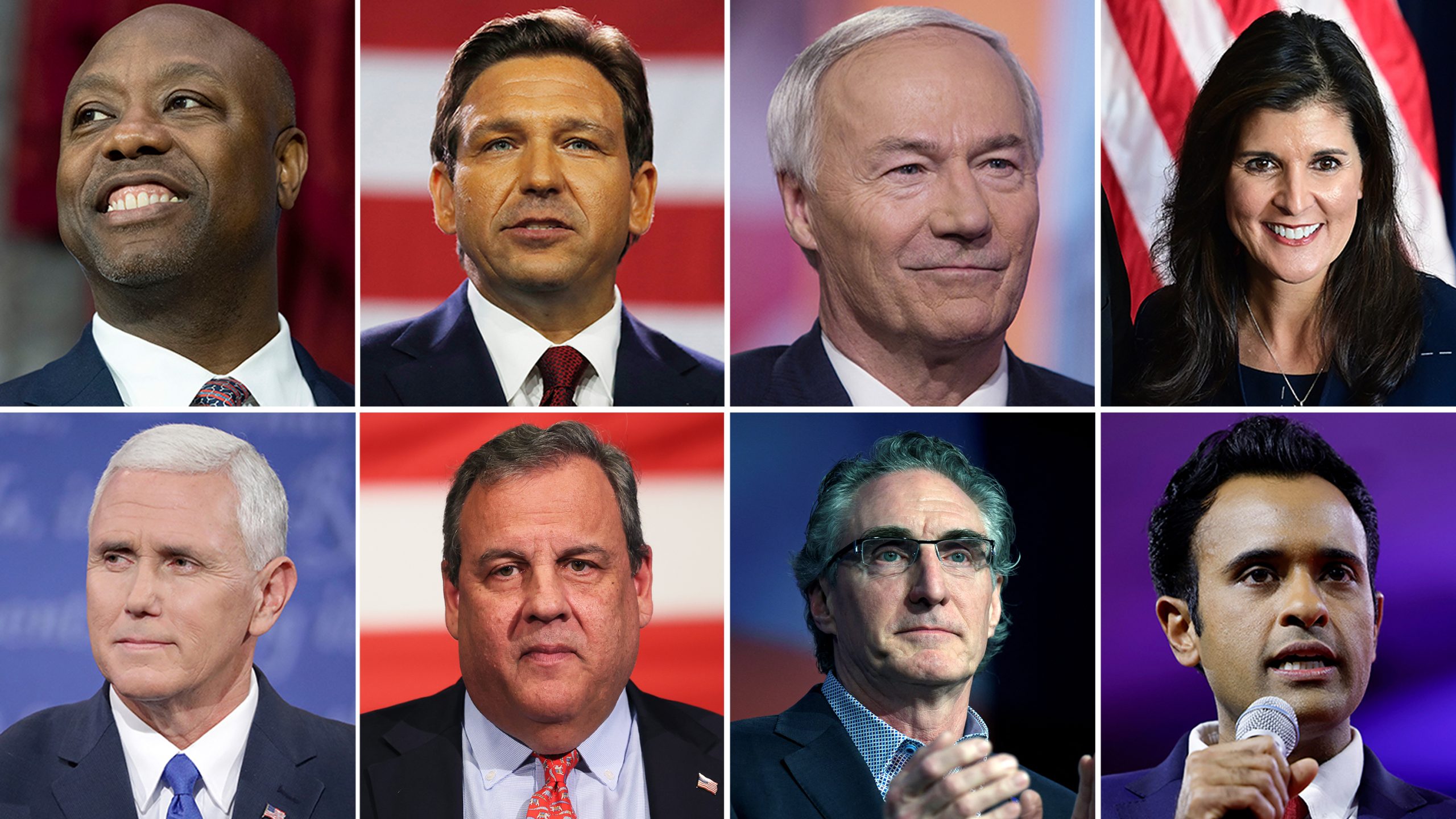Politics
Here Are The GOP Candidates Who Likely Won’t Qualify For The Second Debate

The window to qualify for next week’s second GOP presidential debate is rapidly closing, with the increasing likelihood that more than a few participants from the first round will be shut out.
POLITICO reports that out of eight candidates who participated in last month’s Milwaukee debate, two have yet to receive invitations.
Senator Tim Scott (R-SC) sent a letter last week to the Republican National Committee asking for reforms to the qualifications process which require candidates to achieve three percent in two national polls or one national poll and two state-level polls. The change is an uptick from one percent required for the first debate. Sen. Scott, who is banking on his likability and an uplifting message, currently sits at an average of 2.5 percent in national polls according to Five Thirty Eight. His letter to the RNC has requested that the GOP’s governing body drop its use of national polls.
Similarly, former New Jersey governor Chris Christie sits just half a percent above Scott and faces a perilous shot at qualifying for the debate, which is typically seen as a do-or-die moment for also-ran presidential contenders fighting for sunlight underneath the shadow left by former President Donald Trump. As the frontrunner, Trump has garnered as much as 60 percent of likely GOP voters in some polls.
Based on polling requirements, Trump, Ron DeSantis, Vivek Ramaswamy, Mike Pence, and Nikki Haley appear to qualify for the second debate, set to take place at the Ronald Reagan Presidential Foundation & Institute in Simi Valley, California, about 45 miles outside Los Angeles.
Three other candidates — Will Hurd, Asa Hutchinson, and Doug Burgum — are all polling beneath one percent, meaning the latter two who participated in the first debate will not be invited back. Burgum made a shocking appearance after breaking his leg in a basketball game the previous night, and the North Dakota governor has spent $30 million, mostly from his own fortune, to garner just 0.3 percent in national polls.
Requirements for the GOP’s third debate may mean even higher polling benchmarks for candidates, though no details have yet been publicly released. The RNC will try to entice President Trump into participating by holding its next event in Alabama, the state that favors him most heavily. The GOP frontrunner famously skipped the first debate, appearing for an interview with Tucker Carlson that outpaced the debate’s viewership on Fox News.

